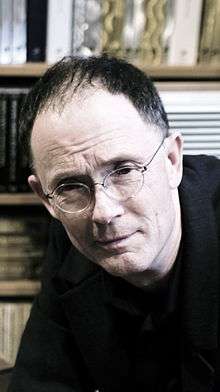
If not for our excessive vanity and our over-active imaginations, novelists might be unusually difficult to deceive.
William Ford Gibson (born 17 March 1948) is an American-Canadian writer who has been called the "noir prophet" of the cyberpunk subgenre of science fiction. Gibson coined the term "cyberspace" in his short story "Burning Chrome" and later popularized the concept in his debut novel, Neuromancer (1984).
Quotes
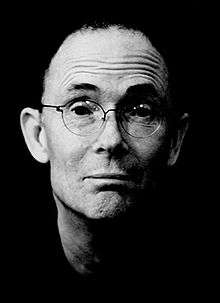
The future is already here — it's just not very evenly distributed.
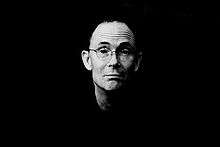
The NET is a waste of time, and that's exactly what's right about it.

Terrorism as we ordinarily understand it is innately media-related.
- On the most basic level, computers in my books are simply a metaphor for human memory: I'm interested in the hows and whys of memory, the ways it defines who and what we are, in how easily memory is subject to revision. When I was writing Neuromancer, it was wonderful to be able to tie a lot of these interests into the computer metaphor. It wasn't until I could finally afford a computer of my own that I found out there's a drive mechanism inside — this little thing that spins around. I'd been expecting an exotic crystalline thing, a cyberspace deck or something, and what I got was a little piece of a Victorian engine that made noises like a scratchy old record player. That noise took away some of the mystique for me; it made computers less sexy. My ignorance had allowed me to romanticize them.
- Interview with Larry McCaffery in Storming the Reality Studio : A Casebook of Cyberpunk and Postmodern Science Fiction, Duke University Press (December 1991)
- The future is already here — it's just not very evenly distributed.
- He is reported to have first said this in an interview on Fresh Air, NPR (31 August 1993) {unverified}, he repeated it, prefacing it with "As I've said many times…" in "The Science in Science Fiction" on Talk of the Nation, NPR (30 November 1999, Timecode 11:55). See also The future has arrived... - Quote Investigator.
- The NET is a waste of time, and that's exactly what's right about it.
- Name of an article he wrote for New York Times Magazine (14 July 1996)
- In 1977, facing first-time parenthood and an absolute lack of enthusiasm for anything like "career," I found myself dusting off my twelve-year-old's interest in science fiction. Simultaneously, weird noises were being heard from New York and London. I took Punk to be the detonation of some slow-fused projectile buried deep in society's flank a decade earlier, and I took it to be, somehow, a sign. And I began, then, to write.
And have been, ever since.
- The future is not google-able.
- Comments at A Clean Well-Lighted Place for Books, San Francisco, California (5 February 2004)
- There is always a point at which the terrorist ceases to manipulate the media gestalt. A point at which the violence may well escalate, but beyond which the terrorist has become symptomatic of the media gestalt itself. Terrorism as we ordinarily understand it is innately media-related.
- Loss is not without its curious advantages for the artist. Major traumatic breaks are pretty common in the biographies of artists I respect.
- Interview in The New York Times Magazine (19 August 2007)
- The most common human act that writing a novel resembles is lying. The working novelist lies daily, very complexly, and at great length. If not for our excessive vanity and our over-active imaginations, novelists might be unusually difficult to deceive.
- Naps are essential to my process. Not dreams, but that state adjacent to sleep, the mind on waking.
- Interview in Paris Review Summer 2011
- This perpetual toggling between nothing being new, under the sun, and everything having very recently changed, absolutely, is perhaps the central driving tension of my work.
- At the Booksmith, reading from Distrust That Particular Flavor. (19 January 2012).
- We no longer grow the full beef of bohemia, It's all veal now.
- Intelligence Squared on 'Zero History' with Cory Doctorow (5th October 2010)
Johnny Mnemonic (1981)
- Page numbers from the reprint in Joe Haldeman ed. Nebula Award Stories 17, paperback edition published by Ace. Story originally published in Omni magazine.
- We're an information economy. They teach you that in school. What they don't tell you is that it's impossible to move, to live, to operate at any level without leaving traces, bits, seemingly meaningless fragments of personal information. Fragments that can be retrieved, amplified...
- “As broker, I'm usually very careful as to sources.”
“You buy only from those who steal the best. Got it.” (p. 91)
- “You have no idea,” said Ralfi, suddenly sounding very tired, “the depths of shit you have just gotten yourself into.” (p. 92)
Burning Chrome (1982)
- The street finds its own uses for things.
Neuromancer (1984)

The damage was minute, subtle, and utterly effective.
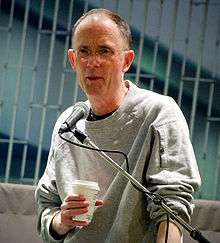
Cyberspace. A consensual hallucination experienced daily by billions of legitimate operators, in every nation, by children being taught mathematical concepts.
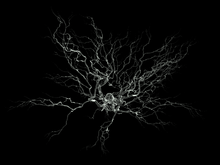
Neuro from the nerves, the silver paths. Romancer. Necromancer. I call up the dead.

But no, my friend … I am the dead, and their land.

He felt the shark thing lose a degree of substantiality, the fabric of information loosening.
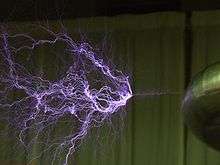
Beyond ego, beyond personality, beyond awareness, he moved.
- The sky above the port was the color of television, tuned to a dead channel.
- They damaged his nervous system with a wartime Russian mycotoxin. Strapped to a bed in a Memphis hotel, his talent burning out micron by micron, he hallucinated for thirty hours. The damage was minute, subtle, and utterly effective. For Case, who'd lived for the bodiless exultation of cyberspace, it was the Fall.
- Night City was like a deranged experiment in social Darwinism, designed by a bored researcher who kept one thumb permanently on the fast-forward button. Stop hustling and you sank without a trace, but move a little too swiftly and you'd break the fragile surface tension of the black market; either way, you were gone, with nothing left of you but some vague memory in the mind of a fixture like Ratz, though heart or lungs or kidneys might survive in the service of some stranger with New Yen for the clinic tanks.
- They'd left the place littered with the abstract white forms of the foam packing units, with crumpled plastic film and hundreds of tiny foam beads. The Ono-Sendai; next year's most expensive Hosaka computer; a Sony monitor; a dozen disks of corporate-grade ice; a Braun coffee maker.
- "Hey," he'd said, "it's me. Case."
The old eyes regarding him out of their dark webs of wrinkled flesh.
"Ah," Ratz had said, at last, "the artiste."
The bartender shrugged. "I came back."
The man shook his massive, stubbled head. "Night City is not a place one returns to, artiste," he said, swabbing the bar in front of Case with a filthy cloth, the pink manipulator whining.
- Wintermute was hive mind, decision maker, effecting change in the world outside. Neuromancer was personality. Neuromancer was immortality. Marie-France must have built something into Wintermute, the compulsion that had driven the thing to free itself, to unite with Neuromancer.
- The cutting of Sense/Net's ice took a total of nine days. "I said a week," Armitage said, unable to conceal his satisfaction when Case showed him his plan for the run. "You took your own good time." "Balls," Case said, smiling at the screen. "That's good work, Armitage." "Yes," Armitage admitted, "but don't let it go to your head. Compared to what you'll eventually be up against, this is an arcade toy."
- A year here and he still dreamed of cyberspace, hope fading nightly. All the speed he took, all the turns he'd taken and the corners he'd cut in Night City, and he'd still see the matrix in his sleep, bright lattices of logic unfolding across that colorless void… The Sprawl was a long strange way home over the Pacific now, and he was no console man, no cyberspace cowboy. Just another hustler, trying to make it through. But the dreams came on in the Japanese night like livewire voodoo, and he'd cry for it, cry in his sleep, and wake alone in the dark, curled in his capsule in some coffin hotel, his hands clawed into the bedslab, temperfoam bunched between his fingers, trying to reach the console that wasn't there.
- Cyberspace. A consensual hallucination experienced daily by billions of legitimate operators, in every nation, by children being taught mathematical concepts… A graphic representation of data abstracted from banks of every computer in the human system. Unthinkable complexity. Lines of light ranged in the nonspace of the mind, clusters and constellations of data. Like city lights, receding...
- Don' 'stand you, mon, but we mus' move by Jah Love, each one
- "Hate," Case said. "Who do I hate? You tell me." "Who do you love?" the Finn's voice asked.
- "Dix," Case said, "I wanna have a look at an AI in Berne. Can you think of any reason not to?"
"Not unless you got a morbid fear of death, no."
- The drug hit him like an express train, a white-hot column of light mounting his spine from the region of his prostate, illuminating the sutures of his skull with x-rays of short-circuited sexual energy. His teeth sang in their individual sockets like tuning forks, each one pitch-perfect and clear as ethanol. His bones, beneath the hazy envelope of flesh, were chromed and polished, the joints lubricated with a film of silicone. Sandstorms raged across the scoured floor of his skull, generating waves of high thin static that broke behind his eyes, spheres of purest crystal, expanding...The anger was expanding, relentless, exponential, riding out behind the betaphenethylamine rush like a carrier wave, a seismic fluid, rich and corrosive.
- The lane to the land of the dead. Where you are, my friend. Marie-France, my lady, she prepared this road, but her lord choked her off before I could read the book of her days. Neuro from the nerves, the silver paths. Romancer. Necromancer. I call up the dead. But no, my friend," and the boy did a little dance, brown feet printing the sand, "I am the dead, and their land." He laughed. A gull cried, "Stay. If your woman is a ghost, she doesn't know it. Neither will you."
- He came in steep, fueled by self-loathing. When the Kuang program met the first of the defenders, scattering the leaves of light, he felt the shark thing lose a degree of substantiality, the fabric of information loosening. And then — old alchemy of the brain and its vast pharmacy — his hate flowed into his hands. In the instant before he drove Kuang's sting through the base of the first tower, he attained a level of proficiency exceeding anything he'd known or imagined. Beyond ego, beyond personality, beyond awareness, he moved, Kuang moving with him, evading his attackers with an ancient dance, Hideo's dance, grace of the mind-body interface granted him, in that second, by the clarity and singleness of his wish to die.
- He found work.
He found a girl who called herself Michael.
- Somewhere, very close, the laugh that wasn't laughter.
He never saw Molly again.
About Neuromancer
- So it's entirely fair to say, and I've said it before, that the way Neuromancer-the-novel "looks" was influenced in large part by some of the artwork I saw in 'Heavy Metal'. I assume that this must also be true of John Carpenter's 'Escape from New York', Ridley Scott's 'Blade Runner'", and all other artefacts of the style sometimes dubbed 'cyberpunk'. Those French guys, they got their end in early.
Count Zero (1986)

The exceedingly rich were no longer even remotely human.
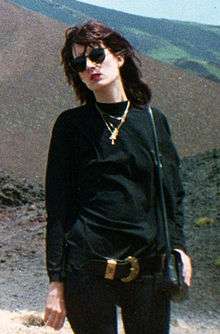
Stim was a medium she ordinarily avoided, something in her personality conflicting with the required degree of passivity.
- Because he had a good agent, he had a good contract. Because he had a good contract, he was in Singapore an hour after the explosion. Most of him, anyway.
- On Turner, in Ch. 1
- In Heathrow a vast chunk of memory detached itself from a blank bowl of airport sky and fell on him. He vomited into a blue plastic container without breaking stride. When he arrived at the counter at the end of corridor, he changed his ticket.
- Ch. 1, Turner begins to recall his past.
- And, for an instant, she stared directly into those soft blue eyes and knew, with an instinctive mammalian certainty, that the exceedingly rich were no longer even remotely human.
- Ch. 2, Marly's sensory link conversation interview with Herr Virek.
- The stick-on holograms had actually had some effect on Bobby, because religion was now something he felt he’d considered and put aside. Basically, the way he figured it, there were just some people around who needed that shit, and he guessed there always had been, but he wasn’t one of them, so he didn’t.
- Ch. 6
- The Gothick girl regarded Bobby with mild interest but no flash of human recognition whatever, as though she were seeing an ad for a product she’d heard of but had no intention of buying.
- Ch. 6
- Stim was a medium she ordinarily avoided, something in her personality conflicting with the required degree of passivity.
- On Marly Krushkhova, in Ch. 23
- “Honey,” Jammer said, “you'll learn. Some things you teach yourself to remember to forget.”
- Spoken to Jackie, Ch. 28
- “As I luxuriate in the discovery that I am no special sponge for sorrow, but merely another fallible animal in this stone maze of a city, I come simultaneously to see that I am the focus of some vast device fueled by an obscure desire.”
- On Marly Krushkhova
Mona Lisa Overdrive (1988)
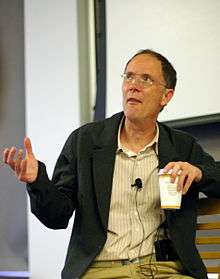
"He’d grown up in white Jersey stringtowns where nobody knew shit about anything and hated anybody who did."
- He’d grown up in white Jersey stringtowns where nobody knew shit about anything and hated anybody who did.
- Ch. 2
- Viewing them induced a mild but not unpleasant vertigo, one of the rare times she was able to directly grasp the fact of her fame.
- Ch. 12
- That’s interesting in itself, because it shows you how adept they were at obscurity. They used their money to keep themselves out of the news.
- Ch. 12
- Have you ever considered the relationship of clinical paranoia to the phenomenon of religious conversion?
- Ch. 13
- Found this picture of Angie laughing in a restaurant with some other people, everybody pretty but beyond that it was like they had this glow, not really in the photograph but it was there anyway, something you feel. Look, she said to Lanette, showing her the picture, they got this glow.
It’s called money, Lanette said.- Ch. 19
- “You were hurt,” Kumiko said, looking at the scar.
Sally looked down. “Yeah.”
“Why don’t you have it removed?”
“Sometimes it’s good to remember.”
“Being hurt?”
“Being stupid.”- Ch. 22
- Your saving grace, Danielle, is that you make the rest of your kind look vaguely human.
- Ch. 25
No Maps for These Territories (2000)
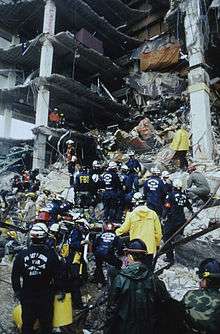
Everything is different from now on. Something, something very fundamental has changed, here.

That truth-is-stranger-than-fiction factor keeps getting jacked up on us on a fairly regular, maybe even exponential, basis.
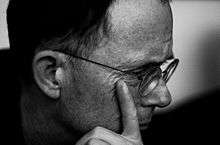
They were a traumatized lot, those boys. And I just felt frivolous.
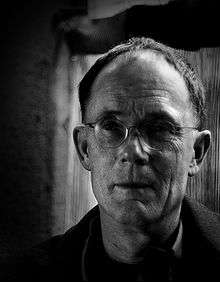
Acceptance … Acceptance that this is not a rehearsal. That this is it.

I think of religions as franchise operations.

It will bring about the extinction of the nation-state as we know it... I think it will be as big a deal as the creation of cities.
- I think the last time...the last time I had one of those "CNN moments," where I was slammed right up against the windshield of — of the present — would have been flipping on the television one day, and seeing that Federal Building in Oklahoma City lying there in its own … crater, and listening to a little bit of the audio, and … and getting the idea that something, something bad had happened in Middle America. And I had … some … very, very deep within me, something seemed to say, "Everything is different from now on. Something, something very fundamental has changed, here." … Whenever something like this happens, and I have one of these moments, it ups the ante on being a science-fiction writer. It changes … it changes the nature of the game.
- Another example — maybe a better one, in a way — was when it was confirmed that Michael Jackson was going to marry Elvis Presley's daughter. [loud, game-show buzzer noise] A good friend of mine in the States faxed me, and he simply … he said, "This makes your job more difficult." And I knew exactly, I knew exactly what he meant. 'Cos something … a scenario that seemed to belong to the universe of the late Terry Southern, was suddenly, suddenly real. It's that truth-is-stranger-than-fiction factor keeps getting jacked up on us on a fairly regular, maybe even exponential, basis. I think that's something peculiar to our time. I don't think our grandparents had to live with that.
- I'd buy him a drink, but I don't know if I'd loan him any money.
- When asked what he would say about the man who wrote Neuromancer.
- I think of Neuromancer as being, in a good sense, an adolescent book. It's a young man's book. It was written very young-man's-book. It was written by a man who was not very young, when he wrote it, but who was sufficiently immature.
- It's a world where there aren't families. It's the world of a young person going out into the wilderness, cities, and sort of in a way creating a family. You know, it's kind of like... it's not that it's a "goth book," but it's kind of rather the same stuff that makes kids be goths.
- About Neuromancer
- It had much more to do with my wanting to be with hippy girls and have lots of hashish than it did with my sympathy for the plight of the North Vietnamese people under US imperialism. Much more, much more to do with hippy girls and hashish.
- On dodging the draft and moving to Toronto
- Consequently, when I got to Toronto, much to my chagrin, I really, really couldn't handle hanging out with the American draft dodgers. There was too much clinical depression. Too much suicide. Too much hardcore substance abuse. They were a traumatized lot, those boys. And I just felt frivolous.
- The straight world didn't end. The straight world and the other world had bled into one another and produced the world that we live in today.
- Drugs were absolutely central to that experience, but they weren't essential. I only know that in retrospect. At the time I'm sure I would have said that they were.
- All any drug amounts to is tweaking the incoming data. You have to be incredibly self-centered or pathetic to be satisfied with simply tweaking the incoming data.
- When did you ever go to a drug dealer, and the drug dealer said, "you know, you should come back tomorrow, this is not very pure." It doesn't happen.
- Acceptance. Acceptance of the impermanence of being. And acceptance of the imperfect nature of being, or possibly the perfect nature of being, depending on how one looks at it. Acceptance that this is not a rehearsal. That this is it.
- When asked what will save humanity.
- I think of religions as franchise operations. Like chicken franchise operations. But that doesn't mean there's no chicken, right?
- Referring to his belief that it's possible for religions to help people.
- Seated each afternoon in the darkened screening room, Halliday came to recognize the targeted numerals of the Academy leader as sigils preceding the dream state of a film.
- A sentence that he worked on for years earlier in his career, which eventually went nowhere. Troubled by inexperience in "actually getting the characters to move," he spent so much time on it that he can still remember every word more than 20 years later.
- I became so frustrated with my inability to physically move the characters through the imaginary narrative space, that I actually developed an early form of imaginary VR technology that sort of covered my ass … all they had to do was switch tapes and be in a different place, and I was spared the embarrassment of demonstrating that I didn't know how to get them up and down the stairs.
- All I knew about the word "cyberspace" when I coined it, was that it seemed like an effective buzzword. It seemed evocative and essentially meaningless. It was suggestive of something, but had no real semantic meaning, even for me, as I saw it emerge on the page.
- It will bring about the extinction of the nation-state as we know it... I think it will be as big a deal as the creation of cities.
- Referring to the Internet
- I didn't imagine that art girls in the Midwest would be flashing their tits in cyberspace...but I'm glad that they're doing it.
- Asked whether the Internet is how he imagined it would be
All Tomorrow's Parties (2003)

The past is past, the future unformed. There is only the moment, and that is where he prefers to be.
- The man steps past them, his cheeks seamed vertically in deep parentheses, as though it has been his habit frequently to smile. They do not see him smile.
The Tao, he reminds himself, is older than God.- Ch. 4 : Formal Absences of Precious Things, p. 20
- The past is past, the future unformed. There is only the moment, and that is where he prefers to be.
- Ch. 4 : Formal Absences of Precious Things, p. 21
- They sat around accessing media all day and talking about it, and nothing ever seemed to get done.
- Ch. 7 : Sharehouse, p. 33
- If Skinner couldn't tell Fontaine a story about something, Fontaine would make up his own story, read function in the shape of something, read use in the way it was worn down. It seemed to comfort him.
Everything to Fontaine, had a story. Each object, each fragment comprising the built world. A chorus of voices, the past alive in everything, that sea upon which the present tossed and rode. When he'd built Skinner's funicular, the elevator that crawled like a small cable car up the angled iron of the tower, when they old man's hip had gotten too bad to allow him to easily climb, Fontaine had a story about the derivation of each piece. He wove their stories together, applied electricity: the thing rose, clicking, to the hatch in the floor of Skinner's room.- Ch. 38 : Vincent Black Lightning, p. 191
Spook Country (2007)
- The old man reminded Tito of those ghost-signs, fading high on the windowless sides of blackened buildings, spelling out the names of products made meaningless by time.
- If Tito were to see one of those announcing the very latest, the most recent and terrible news, yet could know that it had always been there, fading, through every kind of weather, unnoticed until today, that might feel something like meeting the old man in Washington Square, beside the concrete chess tables, and carefully passing him an iPod, beneath a folded newspaper.…
- Sensing an immense patience, and power, Tito imagined that this old man, for reasons of his own, disguised himself as a revenant from Lower Manhattan's past. Each time the old man received another iPod, accepting it the way an ancient and sagacious ape might accept a piece of some not particularly interesting fruit, Tito half-expected him to crack its virginal white case like a nut, and then to draw forth something utterly peculiar, utterly dire, and somehow terrible in its contemporaneity.
- Ch. 2, Ants in the Water
- Organized religion, he saw, back in the day, had been purely a signal-to-noise proposition, at once the medium and the message, a one-channel universe. For Europe, that channel was Christian, and broadcasting from Rome, but nothing could be broadcast faster than a man could travel on horseback. There was a hierarchy in place, and a highly organized methodology of top-down signal dissemination, but the time lag enforced by tech-lack imposed a near-disastrous ratio, the noise of heresy constantly threatening to overwhelm the signal.
- Ch. 23, Two Moors, p. 117
Agency (2020)
- “You haven’t read the nondisclosure agreement?”
“More clauses than I’m used to.”- Ch. 1, The Unboxing
- “He’s a criminal?”
“Financial services,” Eunice said, “but on the street side.”- Ch. 17, MIG
Misattributed
- "Before you diagnose yourself with depression or low self-esteem, first make sure that you are not, in fact, just surrounded by assholes." — thought to be Gibson's words as a result of Twitter attribution decay, despite repeated disavowals. . The source, according to Gibson, is Steven Winterburn . However, Steven Winterburn is NOT the original creator of that quote. The original quote is the creation of Twitter account holder "@debihope" . See research by quoteinvestigator .
External links
- WilliamGibsonbooks.com – personal website
- Twitter feed
- Works by or about Works by or about William Gibson in libraries (WorldCat catalog)
- Profile at IMDb
- William Gibson at the Internet Speculative Fiction Database
- Project Cyberpunk's biography and links
- Bibliography of Works by William Gibson at Centre for Language and Literature, at Athabasca University
- William Gibson Aleph
- Synaptic Response
- Collection of interviews with William Gibson.
This article is issued from
Wikiquote.
The text is licensed under Creative
Commons - Attribution - Sharealike.
Additional terms may apply for the media files.